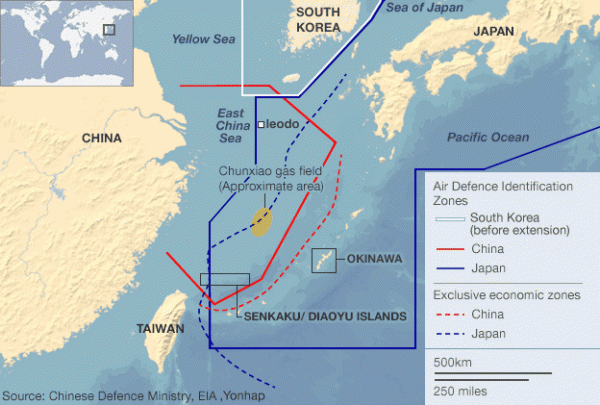
Professor Jacobson just reported that a ponderous tome explaining why black Americans are entitled to reparations has just been published.
In other news, hundreds of Chinese families are suing Japan for compensation related to World War II enforced labor.
As relations between China and Japan plumb a new low, the descendants of hundreds of of Chinese men forced to work in wartime Japan are taking big, modern-day Japanese corporates to court. They are seeking millions in compensation.
…In possibly the biggest class-action suit in Chinese legal history, about 700 plaintiffs lodged a case against two Japanese firms at a courthouse in eastern Shandong province in April, said Fu Qiang, a lawyer representing the families. Among the plaintiffs are several forced labourers, now in their 80s and 90s, and this might be their last chance to seek redress.
The suit was filed against Mitsubishi Corp (Qingdao) Ltd, a subsidiary of Mitsubishi Corp, and Yantai Misubishi Cement Co, a joint venture between Mitsubishi Corp and construction firm Mitsubishi Materials Corp, Fu said.
The plaintiffs are each seeking 1 million yuan ($160,100) in compensation, a public apology in several prominent Chinese and Japanese newspapers, as well as the erection of a memorial and monument in remembrance of the forced labourers, Fu said, adding that they also want the companies to fund their legal expenses.
Perhaps they would settle for control of a certain set of islands called the Senkakus in Japanese (and the Diaoyu in Chinese) that both countries have been vying to control and which have become a source or regional tension?
At the heart of the dispute are eight uninhabited islands and rocks in the East China Sea. They have a total area of about 7 sq km and lie north-east of Taiwan, east of the Chinese mainland and south-west of Japan’s southern-most prefecture, Okinawa. The islands are controlled by Japan.
They matter because they are close to important shipping lanes, offer rich fishing grounds and lie near potential oil and gas reserves. They are also in a strategically significant position, amid rising competition between the US and China for military primacy in the Asia-Pacific region.
…The dispute has rumbled relatively quietly for decades. But in April 2012, a fresh row ensued after outspoken right-wing Tokyo Governor Shintaro Ishihara said he would use public money to buy the islands from their private Japanese owner.
The Japanese government then reached a deal to buy three of the islands from the owner in a move to block Mr Ishihara’s more provocative plan.
But this angered China, triggering public and diplomatic protests. Since then, Chinese government ships have regularly sailed in and out of what Japan says are its territorial waters around the islands.
The Japanese do not look quite ready to cede control of the area, however.
Japanese land, sea and air forces combined to simulate the recapture of a remote island on Thursday, a small drill that nonetheless underscores the country’s concerns about far-flung territory claimed by China.
Bobbing silently into a cove on rubber boats and wielding plastic training rifles, about 50 troops training for a new marine force landed on the uninhabited outcropping, the size of 30 soccer fields, 600 km (370 miles) northeast of a string of islands held by Japan but claimed by China.
In a previous post, I mentioned India and Japan might be looking to strengthen ties in an effort to counterbalance China’s growing regional power. Narendra Modi, the new Prime Minister of India who was swept into power in a historic election, is only one of 3 people followed by Japan’s PM Shinzo Abe on Twitter! It will be interesting to see how the relationship develops over the next few months.
(Note: The other two people on Abe’s list are his wife and a journalist. Interestingly, President Obama is not getting a “follow”).
(Featured image: Chinese Defense Ministry).
Donations tax deductible
to the full extent allowed by law.








Comments
Apparently on the Chinese government is allowed to place Chinese people in forced labor. Also, not so sure about a successor government pressing claims for actions pre-dating its existence. Maybe some vets from the Korean and Vietnam Wars can step forward with claims from treatment directly and by proxy. A whole new world for lawyers.
Didnt the Chinese start the fight with the Japanese, thinking they were bigger, and then the Japanese turned around and waxed them?
Not really. This would be the Second Sino-Japanese War, the one which started in 1937. The Japanese always claimed that the Chinese started it with an “incident” at the Marco Polo Bridge near Beijing, in much the same way that Germany claimed that Poland started WW2.
I’m all for paying reparations to all former slaves freed by Abraham Lincoln.
I think that the apology, etc. are what will doom this. The Japanese just aren’t going to publicly apologize, at least not until the Chines have nuclear armed bombers above them. If it were just money to the few remaining slave laborers, and it could be done w/o loss of face, then sure, they might just pay them off, as a cheap way to settle the issue. But, not if there is any way that the settlement could be taken as Japanese fault.
Last I heard(1980) there were still Koreans in Japan with no status. They were never officially there. Every now and then the two governments would start talking about the problem. Don’t know if they worked it out or the problem just aged out.
“President Obama is not getting a “follow””
No surprise, as low as he bowed to Abe he set his status around that of a Uētoresu.
I’d like China to go after Britain for the Opium Wars . They could demand Charles as honorable token prisoner . Yes please.